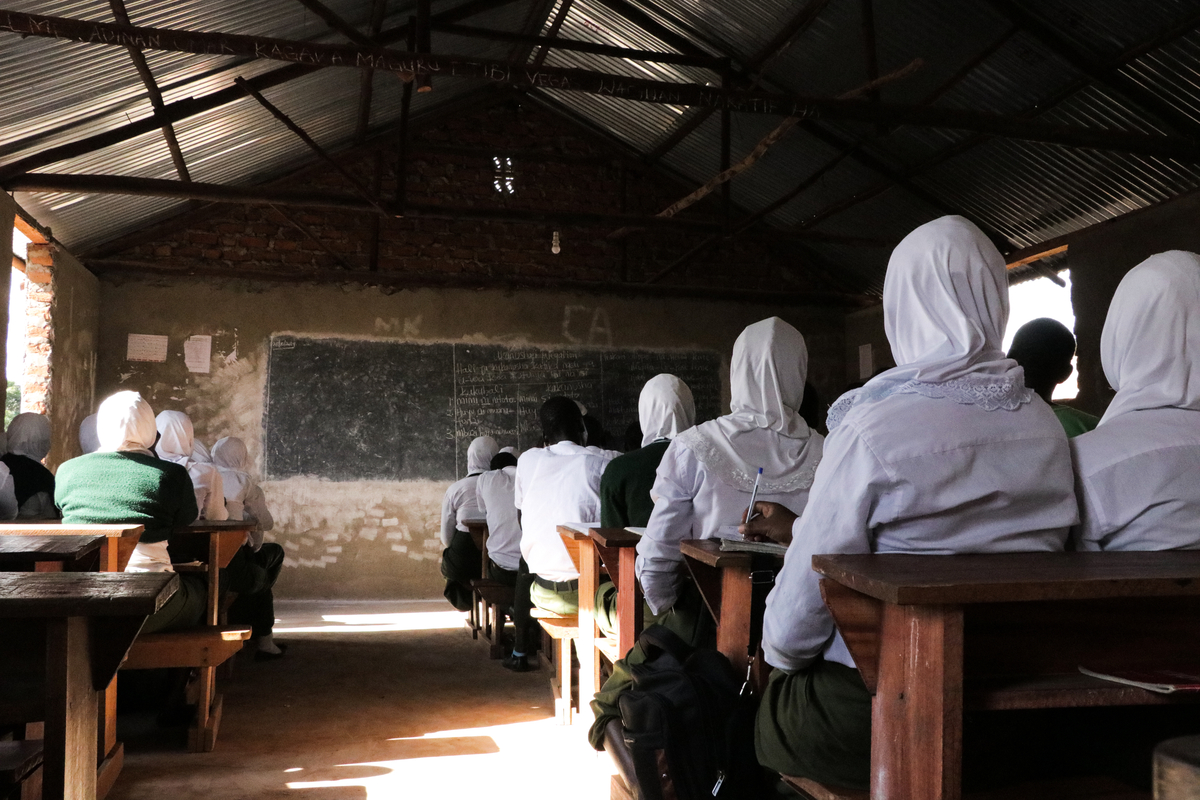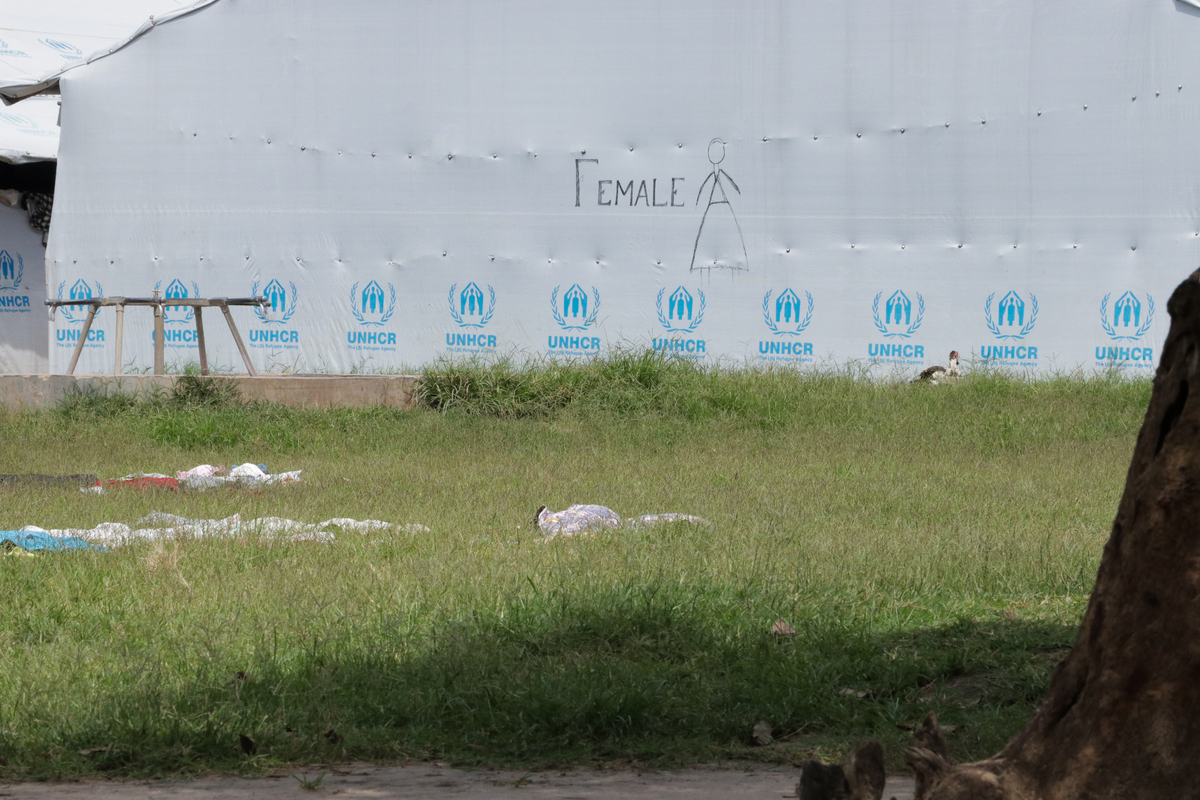[9 January 2020] -- Last month, the first-ever Global Refugee Forum (GEF) convened in Geneva, Switzerland. Organised by UNHCR, the event brought together a range of development partners to discuss long-term action on how to help the estimated 25.9 million refugees worldwide.
It was a great success, with over 770 pledges of support for refugees and their host communities in areas such as protection, employment, and education, and over USD 10 billion in financial commitments from development banks, states and stakeholders, according to UNHCR.
Cities Alliance participated in the GEF with a clear objective: To ensure that the important role cities play in managing refugees is represented at the global level. Cities are often the first stops for refugees, who are increasingly choosing to stay in urban areas where they can earn a living rather than live in camps or settlements. Despite this shift, global discussions on refugees tend to focus on the national level.
To that end, Cities Alliance – working through our Joint Work Programme on Migration and Cities – sought to include the city perspective in discussions. Samuel Mabala, representative of the Cities Alliance Uganda country office, participated in a spotlight session on “Realising Inclusion with City and Refugee Leaders” on behalf of the Hon. Isa Kato, Mayor of Arua, Uganda, who was unable to attend.
The session highlighted the bold action that cities and refugee leaders are taking to welcome and integrate newcomers, demonstrating the critical need for local level buy-in and mayoral commitment to the success of the Global Compact for Refugees.
It also explored challenges for accelerating and scaling up local efforts – the need for national support of local action, local access to international development financing, local capacity building and technical assistance, and sustaining community dialogues, among others.
The experience of Uganda, Africa’s largest refugee-hosting country
Mr. Mabala shared Uganda’s progressive approach to refugees and how cities such as Arua are working to welcome and host self-settled refugees. The largest refugee-hosting country in Africa, Uganda has enacted a series of laws and regulations to provide protections and freedoms to refugees. These include the Comprehensive Refugee Resettlement Framework (CRRF), which ensures a coordinated approach to managing the refugee challenge.
Today in Uganda refugees only receive humanitarian support if they stay in settlement. This needs to change. Many refugees live in cities and they need support there. Humanitarian aid should go to cities not just to settlement.
- Mr. Samuel Mabala, Cities Alliance Uganda Country Office
Mr. Mabala noted that the CRRF is a very good instrument that is supporting to the humanitarian needs of refugees and displaced persons who register with the government and live in refugee settlements. However, in Uganda today, many refugees are choosing to bypass the registration process and go directly to urban areas. Because the refugees are not counted in the national census, the host cities receive no government support for services, infrastructure, or basic needs from the national government or through the CRRF.

This lack of funding in cities is putting pressure on available public services as the demand increases every day. Mr. Mabala noted that Uganda’s cities would like to advocate for more financial transfers and recognition of the presence of refugees in their cities, arguing that they should receive the humanitarian aid designated for refugees as well.
An example is the city of Arua, which has been applauded for its open-door policy to refugees but has been overwhelmed by the sheer number of self-settled urban refugees. Today, Arua estimates that self-settled refugees make up 24 per cent of its total population. There is much goodwill towards the refugees due to shared ethnic ties, but more resources and planning are required to manage this large influx of refugees in a way that meets the basic needs of both the refugees and the host community.
The influx of refugees has led to higher rents for housing, making it unaffordable for many low-income residents. Health care has also been significantly affected as more patients flood Arua’s medical facilities, and available medical supplies cannot meet the needs of the increased population. Supplies are distributed according to an area’s official population size, and without accurate data, the current formula does not include the refugee population residing in the municipalities.
The spotlight session was cosponsored by the Government of Switzerland, the Mayor Migration Council (MMC), the G100 Initiative, and the Diaspora Networks Alliance (DNA).
Panel moderators:
• Ms. Vittoria Zanuso, Executive Director, Mayors Migration Council (MMC)
• Mr. Mohammed Badran, co-founder of the G100 Initiative, the Global Refugee-led Network (GRN), Diaspora Networks Alliance (DNA)
Panel speakers:
• Ms. Jala Al Jazairi, Member of the Board of Migrants, Potsdam, Germany; Member of the Board, DNA
• Mr. Georgios Kaminis, former Mayor of Athens, Greece; Special Envoy to the MMC and C40 Cities
• Mr. Samuel Mabala, Cities Alliance on behalf of Hon. Isa Kato, Mayor of Arua, Uganda
• Mr. Rodrigo Massi Da Silva, Acting Secretary of International Affairs, São Paulo, Brazil
• H.E. Fatma Sahin, Mayor, Gaziantep, Turkey
• H.E. Yousef Al Shawarbeh, Mayor of Amman, Jordan
About the Cities Alliance Joint Work Programme on Cities and Migration
The Cities Alliance Joint Work Programme on Cities and Migration is funded by the Swiss Development Cooperation (SDC). It aims to generate new knowledge, promote analytical and collaborative approaches to key urban issues, and improve urban practices and policies related to cities and migration. It also aspires to become a local, national, and international coordination platform, knowledge hub and think tank for advocating new thinking on migration.
The programme is designed to help cities and countries contribute directly to global agendas, including Agenda 2030 and the Global Compact for Migration.






